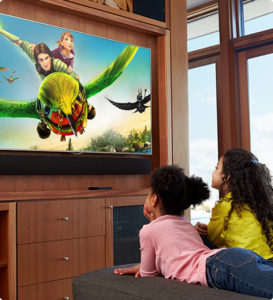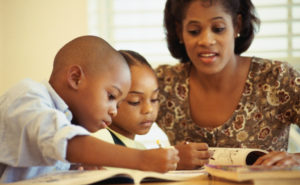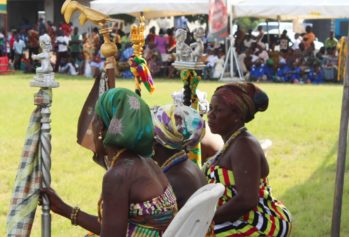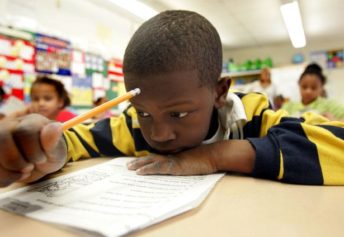 By Brother Victorious
By Brother Victorious
As a middle school educator in a predominantly African-American community, I come into contact with many parents who are working to raise children who are successful in life’s endeavors. Their goal is similar to parents of other races, but the task is filled with many unique challenges. Parenting an African-American child requires that you not only address the normal difficulties of parenting but you do it in an environment that is plagued by structural racism and institutional injustices. It is a complex system to navigate, and many families feel perplexed and helpless in the face of the process.
But there are simple, tangible things African-American parents with children in public school can do to build and produce successful, powerful and caring children.
Turn Off the Television
One of the most important things African-American parents can do for their children is turn off the television. Without guidance, it reinforces negative stereotypes and can confuse a child’s self-perception. According to a Nielsen report, African-Americans watch more television than any other race. We spend an average of 218 hours a month watching television. This is 60 hours more than the second-highest group, white people. Numerous studies have demonstrated the adverse effects on brain function and reality perception that television can have. When you combine the amount of time African-Americans watch television with the saturation of negative images and stereotypes it depicts, this creates a recipe for psychological and academic confusion.

Ask your African-American child what comes to mind when he or she hears the word “Africa.” If the response is filled with negativity, you have a problem. Since your child is the descendant of Africans, a negative idea about them usually means they have a negative idea about self. In school, children frequently insult one another on things that are linked to their African heritage. They tease one another for having a darker complexion, broader facial features and kinky hair.
A few years back during a 90-degree day, my school had a routine fire drill. All students were asked to line up on the basketball court, but my class decided they would huddle underneath the tree. My initial thought was they were attempting to remain cool, but as I approached I heard insults being thrown at students who were a darker complexion. Many said they did not want to stand in the sun because, “I don’t want to get Black.” I immediately addressed this misunderstood ignorance from a historical and psychological perspective, both under the tree and inside the classroom. For many young people, everything that is African inside of a Black person living in America is negative. It is important for parents to instill pride in the rich legacy and heritage of their ancestors. The celebration and education on the contributions that people of African descent have made to civilization is not an instructional priority. Not even in predominantly African-American school districts. If you want your children to appreciate their history and culture, you must teach it. These schools lead African-American children to believe that Europeans created just about everything worth celebrating and can impose a sense of inferiority.
Build Community
Public school education is primarily focused on personal achievement and success of the individual. Public schools have always been competition factories. Couple that with the Black experience of limited opportunities and there is a breeding ground division and aggressive competition. Black children believe that they are in constant competition for the few spots that are available to Black people.
Students in school focus more on their GPAs and how they measure up to their classmates and less on communal growth and collective responsibility. The standard questions from schoolchildren are, “is this going to count for a grade?” The responses to their classmates are usually, “what was your grade?” as a way to compare their achievement to their classmates. Rarely do you hear conversations about improvement and communal responsibility or how the assignment connects to the broader improvement of the community they reside. Instead, Black children are reminded of the narrative, you get an education so that you can leave the “hood,” not improve it.
For those Black children who are raised in struggle, they begin to view their communities with a degree of hopelessness. There is nothing wrong with African-American students learning about competition, but it is equally important that they understand the power of working together to accomplish personal and communal goals. They should see others in their community as comrades in a long-term struggle against oppression. This doesn’t mean they should allow themselves to be taken advantage of or fail to build relationships outside of their community. It means that they should initially interact with other African-American people from a space of mutual respect and collective responsibility, not hostility and disdain.

There is nothing more important to the academic achievement of your child than reading. Carving out time throughout the week for the family to read together is vital in building a culture of learning in the home. According to kidcentraltn.com, “if a child reads for 20 minutes every day, they are exposed to about 1.8 million words of text each year.” Furthermore, it adds 121 hours of bonding time each year. When our children see us reading consistently, they are able to create norms around literacy. Invest more in personal libraries than books and games. Buy books that place African-Americans at the center of their narrative.
Last year, I gave the star basketball player of my middle school a book titled “When I Was the Greatest” by Jason Reynolds. For the next few weeks, every time I saw him he had that book with him. On one occasion he noted, “This is the first time I have read a book that I can relate to.” Since then, this young man has read several other books and has openly expressed his love for reading. This example is important because all youth engage in activities that they can identify with. Many young men see Black men playing basketball or football so they can easily identify with it. The same is true for the young man reading Reynolds’ work — because he identified with the person suggesting the book and identified with a relatable Black character, his interest was piqued. The more they see members of their families reading, the more they are able to build an identity around literacy. When parents of African-American children make reading a priority, it produces positive academic results in the schoolhouse.

In the song “They Schools” by Dead Prez, Sticman raps, “The same people who control the school system, control the prison system and the whole social system, ever since slavery.” It may sound hard-hitting, but it is something to think about when you consider that African-Americans make up 14 percent of the population but 40 percent of the expulsions from school.
The transformation of an institution in our community comes down to the amount of pressure and support we offer the staff at our children’s schools. At my school, we consistently remind parents that our main job is serving their families. Our PTSA president is also a business owner and an active community leader. Parents are encouraged to volunteer, visit classrooms and are welcome to any meeting that is held on campus. It is important for parents to know that their tax dollars fund the schools. Accountability is what helps to push change. African-American parents should be informed advocates for that change.
Parent involvement is at the core of setting the tone for how students will be treated and the productivity of the school. Visit your child’s school often to evaluate your child’s progress, meet with teachers and administration. Be fearless in challenging policies and staff that do not represent the best interest of your child. Your tax dollars fund the schools, and you can make more happen than you may realize.
You Are the Primary Teacher
Over the course of a child’s academic career, he or she will run through dozens of educators never to see them again. Your child should know that every teacher he or she interacts with is secondary to you. African-American parents should look at school as an enhancement of the work that is being done at home. According to the Alliance for Excellent Education, “more than half a million U.S. educators move or leave the profession each year.” Which means, every public school educator is not seasoned enough in the skills and techniques it may take to instruct. No matter the academic year, parents should be teaching and learning alongside their children. Public school should be a place where African-American children can share their educational experiences. The schoolhouse is a place for them to pour out what has already been poured into them.
Parenting in the 21st century is difficult enough with the multitude of distractions, but couple that with being African-American and the stakes are even greater. It is not enough for parents to merely rely on public schools (which are impacted by institutionalized racism), it is the job of the parent to produce well-rounded youth. All parents of African-American children should continue to parent with a purpose in order to produce powerful and productive citizens.
Brother Victorious is a national speaker and host using his platform to focus our attention on the value of positive living, community engagement and education. He was selected by a Clear Channel radio station as one of 2011’s “Top 30 under 30” in Washington, D.C., and has been featured on a variety of local television and radio programs. Brother Victorious has served as an educator in the Prince George’s County Public School System for over eight years as a teacher and academic dean. Victorious is currently working on his first book, “Excelling in America while being Young, Male, and Black: Stories of Resilience.” He resides in Prince George’s County, Maryland, with his wife Tinselyn Simms and his son King Victorious.



